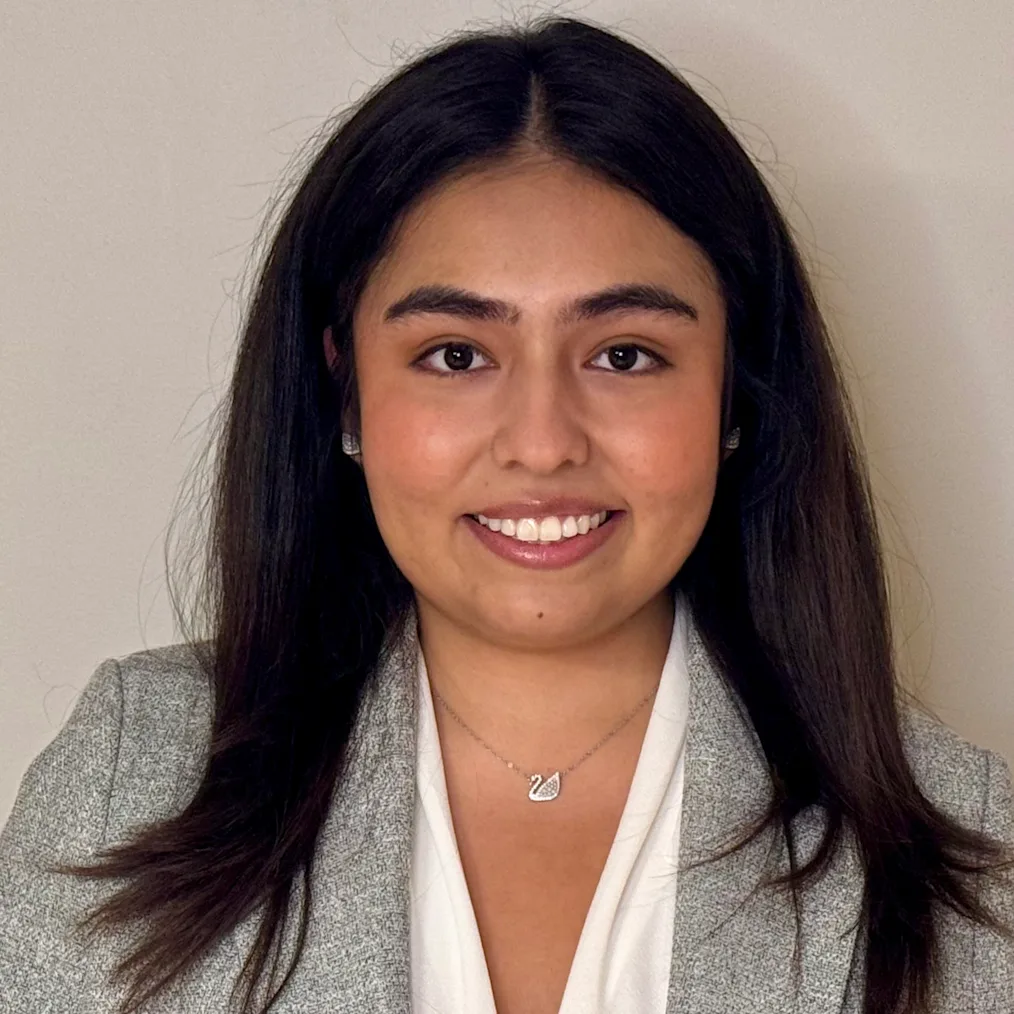Everything changed for Sonia Garcia when she saw older adults having to choose between spending money on medication or food.
“Oftentimes, of course, they're going to choose food because they need it,” said Garcia, who is manager of benefits outreach at the Greater Chicago Food Depository. “Although they need their medication, oftentimes it's really expensive, and it just is inaccessible.”
Garcia leads a team of six working to close the Supplemental Nutrition Assistance Program (SNAP) gap in Cook County. This World Food Day, her work stands as a testament to what's possible when compassion meets systems-level change.
With a business administration degree, she graduated Roosevelt University in Chicago during the pandemic and started working at a health care company, an experience, she says, that shaped her understanding of what people need to survive.
Every day, tens of thousands of eligible Cook County residents go without the food assistance they need according to the Greater Chicago Food Depository’s Food Access Plan (Opens in a new tab) . The help exists—SNAP benefits, Medicaid, WIC—but barriers like language, bureaucratic red tape, and distrust in government systems make access feel impossible, according to the Greater Chicago Food Depository’s Food Access Plan.
As a 2025-2026 University of Chicago Scholar , Garcia has made it her mission to change that, one application, one conversation, and one community at a time. For Garcia, food assistance programs like SNAP represent something far deeper than emergency relief.
Her team supports individuals through the application process, informing them of what documents they need and providing aid until completion. Some program applications are up to 20 pages long, which can be especially daunting for people if they are not in their native languages.
“I genuinely believe food is not only just to nourish your body, but it's also like your spirit, your soul. People share love languages through providing people with food—coming home and Grandma's making dinner, making your favorite cookies, having your favorite meal on your birthday. It's little things like that that I think bring people hope and lift up spirits.”
She continues: “Food extends beyond just having something to eat. Of course, it's important, but it's more than that. It's more than that to the people that we're helping. For a lot of them, it's hope. It's opportunity. It's not having to worry about where my next meal is going to come from.”
This understanding drives her team's work across Cook County, helping residents navigate applications for SNAP, Medicaid, WIC, and other public benefit programs. These challenges are acute throughout the county, including in communities like Little Village, Pilsen, and the broader Southwest Side, where she both lives and works
It matters, she says, beyond just helping the individuals connect with sustenance; for every $1 spent in SNAP benefits, up to $1.50 is generated in economic growth. (Opens in a new tab)
“When you're thinking of food deserts that are located on the South and West Sides or even in rural America, where maybe there are no (grocery stores) and people are shopping at Dollar Generals to get a lot of their food—that's where SNAP comes into play with building the case for why we need grocery stores.”
Many immigrant communities and disenfranchised populations distrust government systems, said Garcia. Her response? Building trust through presence.
Garcia says her participation in The Obama Foundation Scholars Program has expanded her approach to solving these entrenched problems by connecting her with global peers. Working within a “brain trust” focused on health equity, Garcia collaborates with peers in her cohort addressing similar challenges in different contexts.
“It's really challenged me to think about how we can use global approaches to solve localized problems,” she said. “We all have different lived experiences, and being able to connect with folks that have diverse beliefs has challenged my way of thinking, how I see problems, and how I should be acting in order to solve them.”
On World Food Day, Garcia offers a simple message: “Food is a human right. Everyone deserves the opportunity to eat, not only just a meal, but something that's culturally inclusive, something that speaks to you.”
She encourages everyone to look beyond food drives, “Get connected with their local food bank, learn more about it, to find out how they can support. These efforts extend just beyond the individual. I think collectively, if we all come together, we can make an impact on hunger.”




